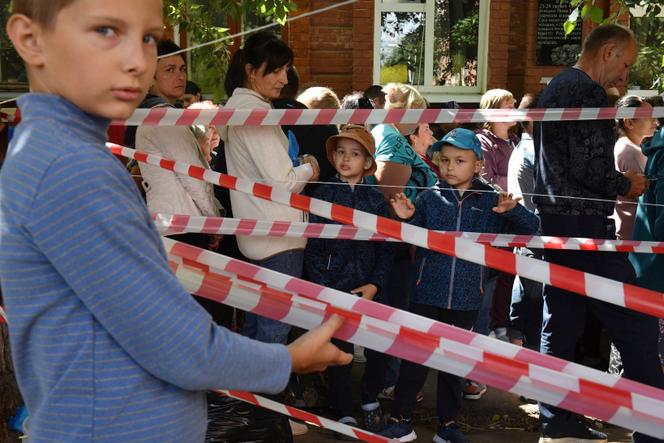


"Over there, on our own Russian soil, it's war...." On a Moscow station platform, a lone grandfather waited for his family. It was almost 11 pm on Monday, August 12, when the packed train arrived from Kursk, just 500 kilometers southwest of the capital. Almost a week after the start of the Ukrainian army's surprise offensive in this border region, the Russian authorities announced the evacuation of 121,000 people from the combat zone, a record since the second Chechen war (1999-2009). At the Moscow train station, family reunions unfolded with little emotion. On the platform, no one wished to comment on the situation, made even more confusing by the reassuring messages relayed via the Kremlin's TV channels, which contradicted alarming reports on social media.
"The enemy will receive an appropriate response. All the objectives we face will undoubtedly be achieved," Vladimir Putin promised on Monday evening, during a partially televised meeting with his military chiefs. Around the Kremlin leader, who ordered his army to "expel" "enemy" troops from Kursk and accused the West of "fighting us with Ukrainian hands," faces looked tense. The facts are there, hard to conceal from the public, and widely reported on social media: 28 localities are now under the control of Ukrainian forces, whose advances are 12 kilometers deep into the country and spanning over 40 kilometers. This is the biggest offensive by a foreign army on Russian soil since the Second World War.
At least 12 civilians were killed and 121 wounded, including 10 children, continued the governor. "We don't know what has happened to around 2,000 people in these areas. To date, 121,000 people have already left or been evacuated," said the acting governor of the Kursk region, Alexei Smirnov. Vyacheslav Gladkov, his counterpart in the neighboring Belgorod region, a regular Ukrainian target for months prior to their surprise attack on the Kursk region, also announced preventative evacuations on Monday, due to "enemy activity on the border."
In all, some 195,000 people were set to be evacuated in the last few hours. The last time Russian populations fled en masse from fighting inside the country was during the second Chechen war. Back then, there was no coordinated evacuation, and refugees fled the fighting themselves. Today, in the Kursk region, authorities ensured that evacuations were organized. But initial reports in the Russian press revealed that, in the absence of centralized information and sufficient coordination on the ground, many families are actually having to cope on their own. At the same time, in Moscow as well as in the regions, aid collection initiatives are being set up to send help to Kursk, the main city in the oblast that has not been taken by the Ukrainians.
You have 52.15% of this article left to read. The rest is for subscribers only.
